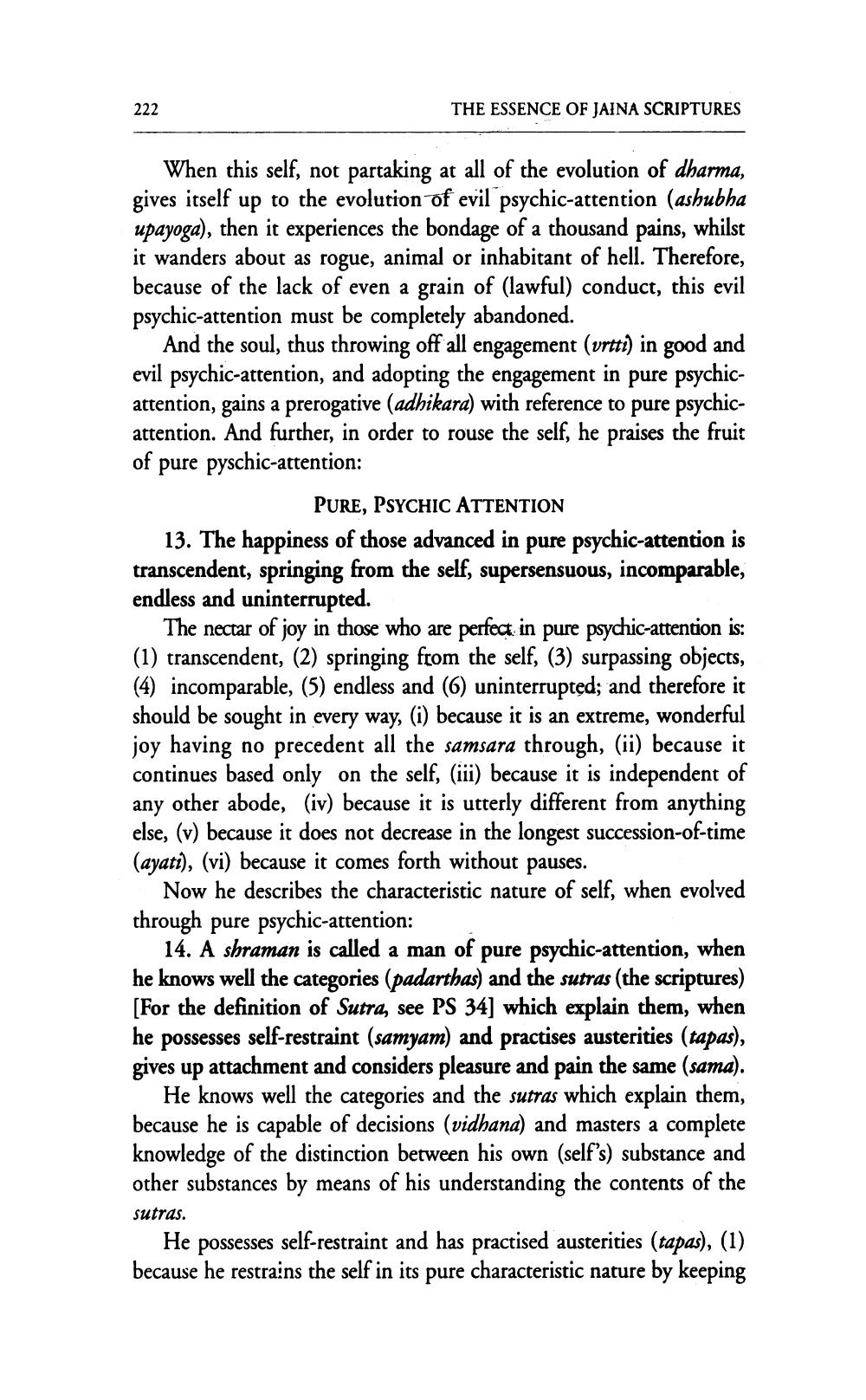________________
222
THE ESSENCE OF JAINA SCRIPTURES
When this self, not partaking at all of the evolution of dharma, gives itself up to the evolution of evil psychic-attention (ashubha upayoga), then it experiences the bondage of a thousand pains, whilst it wanders about as rogue, animal or inhabitant of hell. Therefore, because of the lack of even a grain of (lawful) conduct, this evil psychic-attention must be completely abandoned.
And the soul, thus throwing off all engagement (vrtti) in good and evil psychic-attention, and adopting the engagement in pure psychicattention, gains a prerogative (adhikara) with reference to pure psychicattention. And further, in order to rouse the self, he praises the fruit of pure pyschic-attention:
PURE, PSYCHIC ATTENTION 13. The happiness of those advanced in pure psychic-attention is transcendent, springing from the self, supersensuous, incomparable, endless and uninterrupted.
The nectar of joy in those who are perfect in pure psychic-attention is: (1) transcendent, (2) springing from the self, (3) surpassing objects, (4) incomparable, (5) endless and (6) uninterrupted; and therefore it should be sought in every way, (i) because it is an extreme, wonderful joy having no precedent all the samsara through, (ii) because it continues based only on the self, (iii) because it is independent of any other abode, (iv) because it is utterly different from anything else, (v) because it does not decrease in the longest succession-of-time (ayati), (vi) because it comes forth without pauses.
Now he describes the characteristic nature of self, when evolved through pure psychic-attention:
14. A shraman is called a man of pure psychic-attention, when he knows well the categories (padarthas) and the sutras (the scriptures) [For the definition of Sutra, see PS 34] which explain them, when he possesses self-restraint (samyam) and practises austerities (tapas), gives up attachment and considers pleasure and pain the same (sama).
He knows well the categories and the sutras which explain them, because he is capable of decisions (vidhana) and masters a complete knowledge of the distinction between his own (self's) substance and other substances by means of his understanding the contents of the sutras.
He possesses self-restraint and has practised austerities (tapas), (1) because he restrains the self in its pure characteristic nature by keeping




